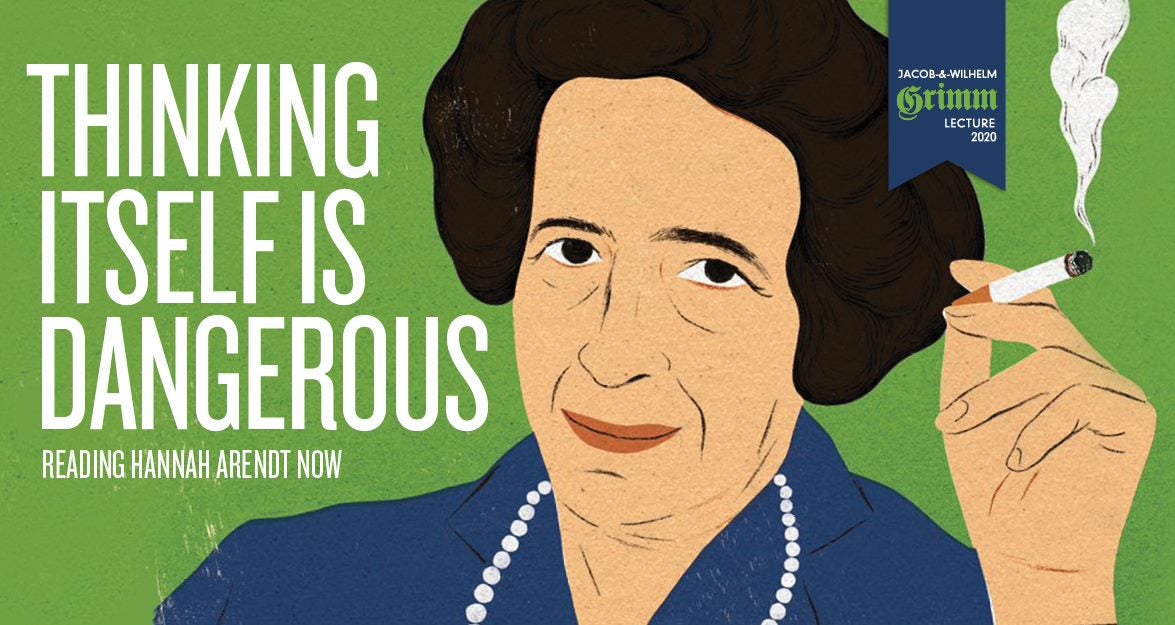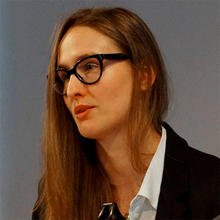What can Hannah Arendt’s life and work teach us about our present political moment? For the 2020 Grimm Lecture, the Waterloo Centre for German Studies presents Arendt scholar Samantha Rose Hill speaking about the renewed interest in Hannah Arendt’s work, and why we should be reading Arendt now to better understand the politics of today. PLEASE NOTE: THIS LECTURE WILL BE LIVE-STREAMED.

In the wake of Donald Trump’s presidency, and the rise of illiberalism world-wide, many have turned to the work of Hannah Arendt, a twentieth-century German Jewish political thinker, to understand our contemporary political moment. Since 2016, Arendt’s 1951 The Origins of Totalitarianism has been selling at record numbers. Nearly 600 pages long, Origins distils the various elements of totalitarianism, like the collapse between truth and fiction, the breakdown of the rule of law, the privatization of public goods, the decline of the nation-state, the rise of mass homelessness, rootlessness, loneliness, and the need for solitude.
Dr. Hill’s lecture will be followed by a question-and-answer segment. You will be able to post questions during the talk, which we will then put to Dr. Hill live.
About the speaker

Samantha Rose Hill is the assistant director of the Hannah Arendt Center for Politics and Humanities, visiting assistant professor of Political Studies at Bard College, and associate faculty at the Brooklyn Institute for Social Research in New York City. She is the author of two forthcoming books: Hannah Arendt, a biography, and Hannah Arendt’s Poems. You can find her writing in the Los Angeles Review of Books, Public Seminar, OpenDemocracy, Theory & Event, Contemporary Political Theory, and The South Atlantic Quarterly. For more information please visit her website: www.samantharosehill.com
This event is presented in cooperation with the departments of Philosophy and Germanic & Slavic Studies at the University of Waterloo, and the Balsillie School of International Affairs.